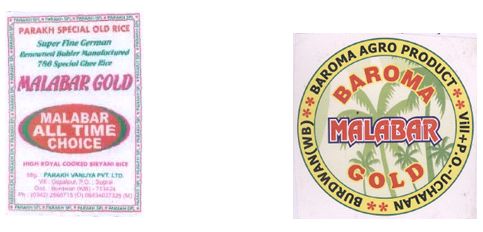
In, Parakh Vanijya Private Limited v. Baroma Agro Product and others [Civil Appeal No.6642/2018 arising out of SLP(C) No.17445 of 2017 ], the Supreme Court of India (Supreme Court) dismissed the appeal filed by Parakh Vanijya Private Limited (Parakh), affirming the decision of the Division Bench of the Calcutta High Court (High Court) holding that there can be no exclusive right for the word "MALABAR" especially in light of the disclaimer/condition/limitation imposed on the registration of Parakh's mark for the word "MALABAR".
Parakh had instituted an infringement and passing off suit against Baroma Agro Product (Baroma) for the latter's use of the mark "MALABAR GOLD" in relation to biryani rice. The Single Judge of the High Court had initially granted an interim injunction based on the similarity between the rival marks, which the Division Bench declined to interfere with. During the pendency of the suit, Baroma filed an application for vacating the injunction decision on various grounds including that Parakh cannot claim exclusive right over the mark 'MALABAR' due to the disclaimer/condition/limitation. After hearing the rival contentions, the interim injunction decision was modified to allow the use of the word "MALABAR" in conjunction with "BAROMA", with certain conditions on the font size of the word "MALABAR". Aggrieved by this decision of the Single Judge, Parakh preferred an appeal before the Division Bench. The Division Bench affirmed the decision of the Single Judge and dismissed the appeal. Aggrieved by the decision of the Division Bench, Parakh preferred the present appeal before the Supreme Court.
The Supreme Court after hearing the parties, passed the present decision relying on Baroma's argument that Parakh's registration for the mark "MALABAR" had been granted with a disclaimer/limitation that the registration would not give any exclusive right to the use of the word "MALABAR".
The Malabar region forms part of southwest India covering the State of Kerala. Historically, Kerala was sought after by traders and explorers for its well-known spices. It was during that time when traders from Middle East started travelling to Kerala leading to a fusion of Arab and Keralite recipes. One such recipe/dish is the Malabar Biryani which differs from the usual Biryani recipe that is popular throughout the Indian subcontinent. Rice is the key ingredient in Biryani and is also a staple in Kerala. In these circumstances, granting exclusivity to Parakh for "MALABAR" would have been unfair.
The decision is also a reminder to trademark owners to keep a close tab on the disclaimers/conditions imposed at the time of grant of registration and to strategize accordingly in enforcing their statutory rights. At times, during the trademark prosecution stages, to secure quick acceptance of marks, trademark owners quickly agree to such disclaimers/conditions, which come to haunt them later.
It is also important to note that the trademark registration certificates in India do not reflect such disclaimers/conditions and these are only reflected: in the Trade Marks Journal (where the mark is published), and the certified copy of the entry made in the Register of Trade Marks (Certified Copy). Therefore, during a trademark acquisition transaction, it is important that the acquirer's diligence team reviews the Trade Marks Journal extract or the Certified Copy to ensure that the brand's rights are not limited by such disclaimers/conditions- mere registration or reviewing the registration certificate is not good enough.
The content of this document do not necessarily reflect the views/position of Khaitan & Co but remain solely those of the author(s). For any further queries or follow up please contact Khaitan & Co at legalalerts@khaitanco.com


